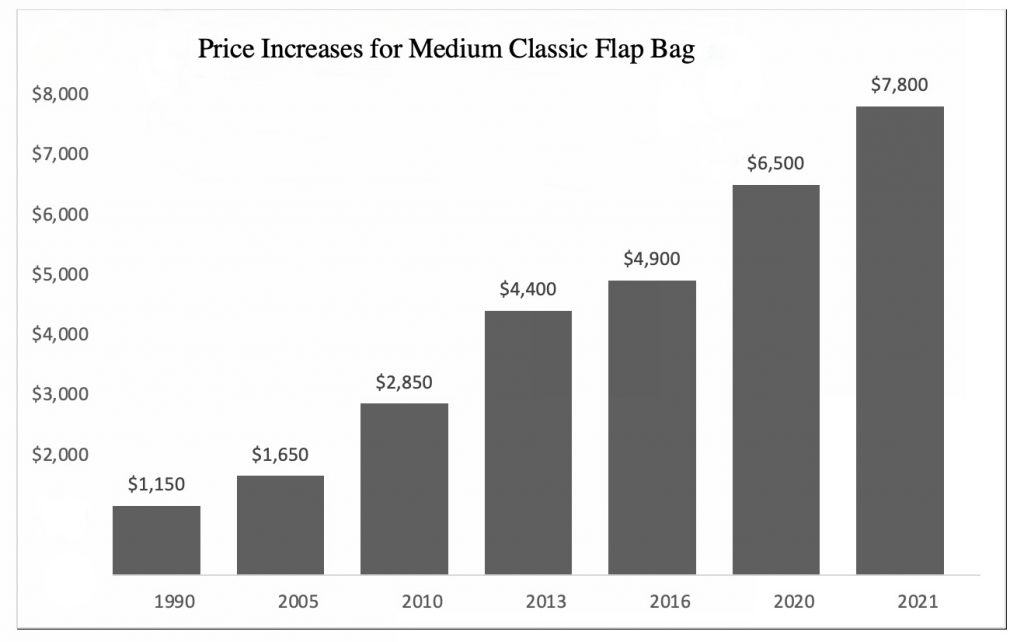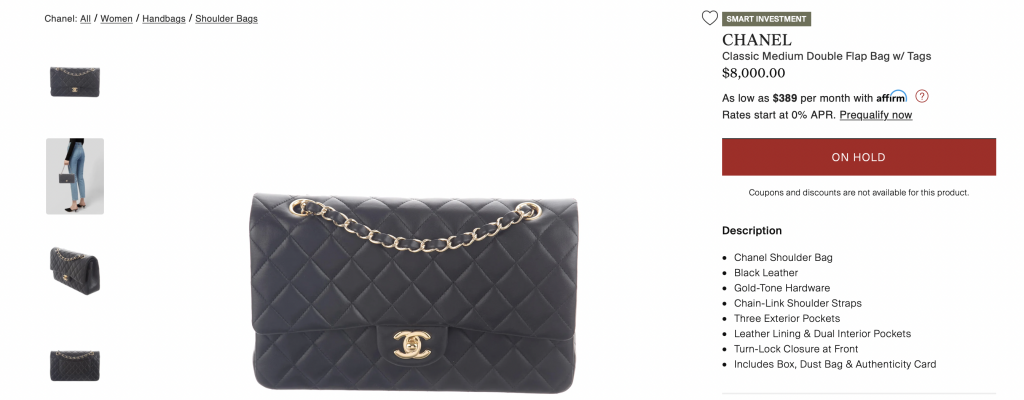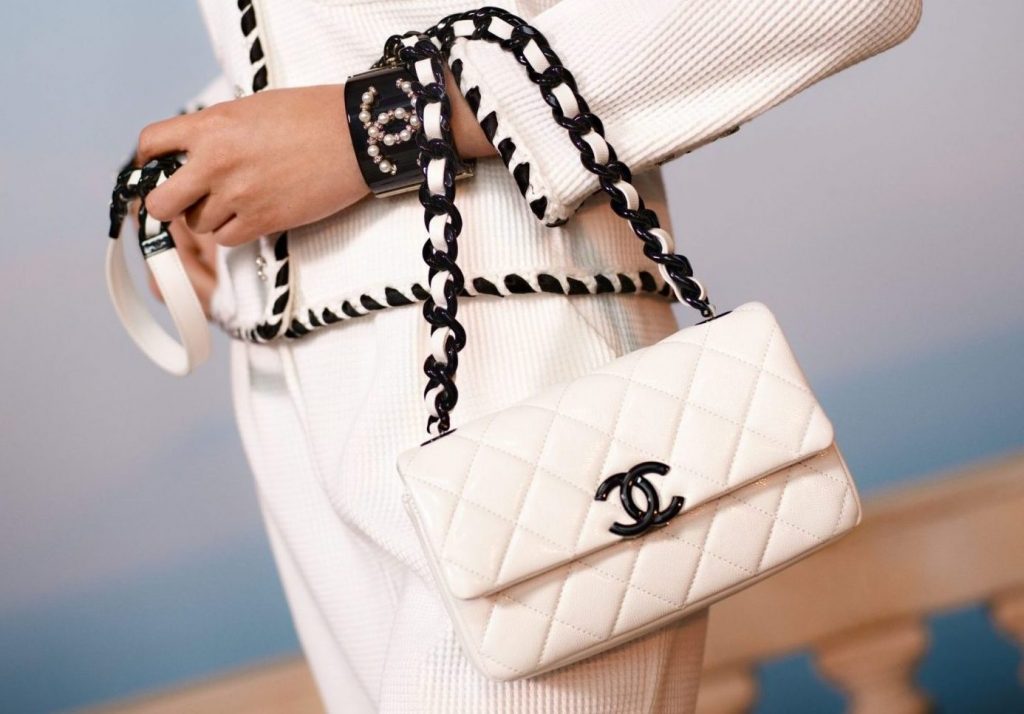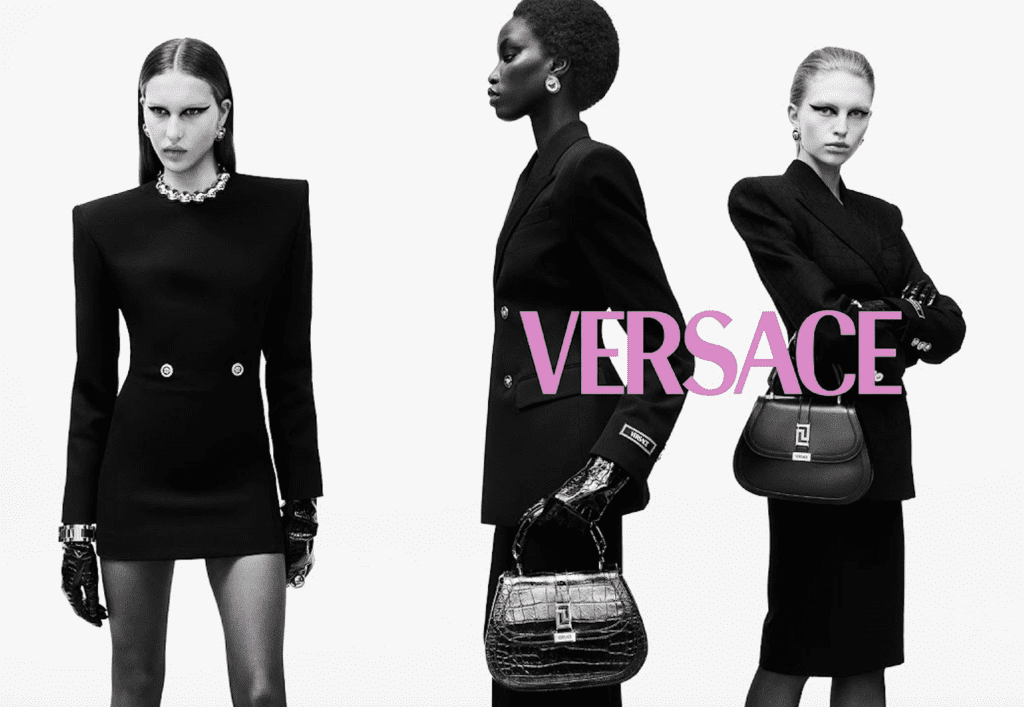Chanel hiked up its prices twice during the pandemic. First, it tacked an increase of between 5 and 17 percent on certain bags in May 2020, citing a rise in the cost of certain raw materials and “the consequence of recent significant exchange rate fluctuations between the euro and certain local currencies.” The famed fashion brand followed this up with another 5 percent rise in October 2020 in line with a larger trend that has also seen some of its rivals, including Louis Vuitton, Dior, and Gucci, boosting price tags (and protecting margins) in the midst of the COVID-19 pandemic. Now, Chanel is making good on Philippe Blondiaux’s recent assertion that prices could go up again, with Chanel’s finance chief stating last month that another increase might follow from Chanel’s “policy of reviewing prices worldwide twice a year.”
The increases, which take effect on July 1, push the prices of styles like the Chanel 19 Small bag up by 10 percent. While on the more aggressive end of the spectrum, Chanel’s Classic Medium and Classic Jumbo Flap bags are set to increase in price by almost 15 percent to $7,800 and $8,500, respectively, whereas the Classic Maxi version will cost $9,200, which amounts to a 15 percent more.
Chanel’s enduring price hikes have prompted at least some consumers to balk, with the Korea Times stating on Wednesday that “some say they are not interested in buying Chanel products anymore citing the exorbitant price tags.” However, not all Chanel fans have reacted that way. “Others say they plan to do an ‘open run,’ which refers to customers lining up before opening hours to rush inside as soon as the store opens to grab the items they want,” according to the site’s Yoon Ja-young, who stated that “the number of people lining up in front of the Chanel store in downtown Seoul on Monday morning appeared to be as twice as long as usual,” after rumors of an impending price increase began to circulate.
The same was true back in May 2020 when consumers in China and South Korea lined up outside Chanel stores as soon as rumors of imminent price increases began to circulate on social media, per Reuters, which shed light on the risk that comes with consistent and substantial price rises, as – again – in that specific price-hike scenario, a certain portion of consumers said they would shun Chanel’s increasingly expensive offerings, presumably in favor of its competitors. Meanwhile, in the U.S., store associates told TFL that on the heels of the May 2020 increases, no shortage of consumers were put off by the price hikes, particularly as at least some were aware of – and thus, unprepared for – the higher prices.

Still yet, there are other consumers who will likely continue to shell out on Chanel bags despite consistently inflating prices, particularly as wealthy shoppers across the globe have more money spend in light of enduring COVID-related travel restrictions and social limitations, activities that they would have otherwise dedicated cash to during pre-pandemic years. With international travel largely out of the question, Kim Yae-ri, a professor of Digital Marketing at Sejong Cyber University, told the Korea Times that “people seem to be turning more to luxury goods, which they see as symbols that represent their identity.” Luxury brands like Chanel are acutely aware of this, she says. “They know that people will continue to purchase their goods even if they raise the prices.”
But even if certain luxury names have been able to raise prices amid a global pandemic and even if consumers have been willing to pay accordingly, there may be a sticking point for even the most willing luxury shoppers, which prompts questions about how long this overarching push to raise price tags can go on for. Analyst Luca Solca addressed this potentially glaring issue in Bernstein’s “Untapped Price Increase Reservoir” report this past fall, stating that “experts fear that if prices continue to swell at this rate, luxury brands risk needing to implement ‘painful corrections,’ and simultaneously, [risk] eroding brand value in the process.”
As for the potential winners in Chanel’s price-hike scenario, Jefferies’ Flavio Cereda stated in a note on Thursday that the price rises “are good news for [Chanel’]s leather peers and in our view, particularly for Dior as the closest competitor,” as similarly-situated brands are now able to “either follow suit with their own price rises or [to] scoop up customers who may be priced out of Chanel bags.”

Also standing to gain as brands like Chanel boost the prices of their most coveted offerings: the growing number of luxury resale companies, including (but not limited to) the likes of Paris-based Vestiaire Collective and The RealReal in the U.S., the latter of which currently boasts a selection of upwards of 2,000 Chanel bags (all of which are available for “final sale” and thus, are “not returnable”), and which lists Chanel’s offerings as among those that maintain “top resale values.”
The robustness of the resale market does not mean that consumers will score super-striking deals for these bags even in a secondary-market capacity. In fact, the opposite appears to be true, particularly in light of the fact that Chanel has continued to buck the trend of luxury brands increasingly adopting e-commerce, and does not, itself, offer up its fashion and leather goods by way of the web. On The RealReal’s e-commerce site, for example, a Classic Medium Double Flap Bag with tags – which is labelled as a “Smart Investment” – is listed for $8,000; as of the time of writing, that bag was among a number of flap bags in consumers’ carts, potentially prompted by the Chanel price-rise news.
To put resale prices in perspective further: A 2021 pale pink Classic Medium Double Flap Bag with tags will similarly set consumers back consumers a cool $8,000, while a 2020 Classic Medium Double Flap Bag and a 2017 red Classic Medium Double Flap Bag in “very good” condition are among other not-brand-new bags commanding prices of $7,500 to more.
Such enduring resale demand almost certainly helps Chanel to successfully boost prices, as consumers, particularly those of the millennial ilk, have been known to be more willing to spend on bags (and other luxury goods, including watches) if they know that there is a thriving secondary market in place. At the same time, the burgeoning resale market also helps to explain Chanel’s meticulous watch of – and legal efforts in – this segment, which have included claims that resale companies are not only offering up counterfeit or otherwise infringing products but that they are looking to piggyback on the goodwill of the Chanel brand for their own gain without Chanel’s authorization and in ways that may be misleading to consumers.











